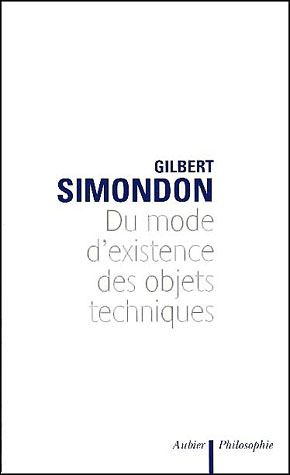Bruno Latour: We Have Never Been Modern (1991–) [EN, PT, RU, ES, CN]
Filed under book | Tags: · anthropology, modernity, nature, philosophy, politics, science, social science, technology

With the rise of science, we moderns believe, the world changed irrevocably, separating us forever from our primitive, premodern ancestors. But if we were to let go of this fond conviction, Bruno Latour asks, what would the world look like? His book, an anthropology of science, shows us how much of modernity is actually a matter of faith.
What does it mean to be modern? What difference does the scientific method make? The difference, Latour explains, is in our careful distinctions between nature and society, between human and thing, distinctions that our benighted ancestors, in their world of alchemy, astrology, and phrenology, never made. But alongside this purifying practice that defines modernity, there exists another seemingly contrary one: the construction of systems that mix politics, science, technology, and nature. The ozone debate is such a hybrid, in Latour’s analysis, as are global warming, deforestation, even the idea of black holes. As these hybrids proliferate, the prospect of keeping nature and culture in their separate mental chambers becomes overwhelming–and rather than try, Latour suggests, we should rethink our distinctions, rethink the definition and constitution of modernity itself. His book offers a new explanation of science that finally recognizes the connections between nature and culture–and so, between our culture and others, past and present.
Nothing short of a reworking of our mental landscape. We Have Never Been Modern blurs the boundaries among science, the humanities, and the social sciences to enhance understanding on all sides. A summation of the work of one of the most influential and provocative interpreters of science, it aims at saving what is good and valuable in modernity and replacing the rest with a broader, fairer, and finer sense of possibility.
Originally published as Nous n’avons jamais été modernes. Essai d’anthropologie symétrique, La Découverte, 1991
Translated by Catherine Porter
Publisher Harvard University Press, 1993
ISBN 0674948386, 9780674948389
157 pages
wikipedia
publisher
google books
We Have Never Been Modern (English, trans. Catherine Porter, 1993, updated on 2012-7-17)
Jamais fomos modernos. Ensaio de antropologia simétrica (Portuguese, trans. Carlos Irineu da Costa, 1994, added on 2013-9-13)
Нового Времени не было. Эссе по симметричной антропологии (Russian, trans. Д. Я. Калугина, 2006, added on 2013-9-13)
Nunca fuimos modernos. Ensayo de antropología simétrica (Spanish, trans. Víctor Goldstein, 2007, added on 2013-9-13)
我们从未现代过. 对称性人类学论集 (Chinese, trans. 刘鹏 and 安涅思, 2011, added on 2013-9-13)
See also Latour’s Inquiry into Modes of Existence: An Anthropology of the Moderns (2012/2013)
Comment (0)Gilbert Simondon: On the Mode of Existence of Technical Objects (1958–) [FR, EN, ES]
Filed under thesis | Tags: · individuation, philosophy, philosophy of technology, technical object, technics, technology

“The purpose of this study is to attempt to stimulate awareness of the significance of technical objects. Culture has become a system of defense designed to safeguard man from technics. This is the result of the assumption that technical objects contain no human reality. We should like to show that culture fails to take into account that in technical reality there is a human reality, and that, if it is fully to play its role, culture must come to terms with technical entities as part of its body of knowledge and values. Recognition of the modes of existence of technical objects must be the result of philosophic consideration; what philosophy has to achieve in this respect is analogous to what the abolition of slavery achieved in affirming the worth of the individual human being.
The opposition established between the cultural and the technical and between man and machine is wrong and has no foundation. What underlies it is mere ignorance or resentment. It uses a mask of facile humanism to blind us to a reality that is full of human striving and rich in natural forces. This reality is the world of technical objects, the mediators between man and nature.” (from the Introduction)
French edition
Preface by John Hart
Afterword by Yves Deforge
Publisher Aubier, Paris, 1958, 1969, 1989
ISBN 2700718518
English edition, Part I
Translated by Ninian Mellamphy
With a preface by John Hart
Publisher University of Western Ontario, June 1980
98 pages
Commentary (EN)
Du mode d’existence des objets techniques (French, 1958/1969, added on 2014-4-21)
On the Mode of Existence of Technical Objects, Part I (English, trans. Ninian Mellamphy, 1980, added on 2014-4-21). Different version (updated on 2012-8-23).
Du mode d’existence des objets techniques (French, 1958/1989, no OCR, updated on 2014-4-21)
El modo de existencia de los objetos técnicos (Spanish, trans. Margarita Martinez and Pablo Rodriguez, 2007, added on 2014-4-21)
Martin Heidegger: The Question Concerning Technology, and Other Essays (1977)
Filed under book | Tags: · philosophy, philosophy of technology, technology

“For Martin Heidegger broadly, the question of being formed the essence of his philosophical inquiry. In The Question Concerning Technology (Die Frage nach der Technik), Heidegger sustains this inquiry, but turns to the particular phenomenon of technology, seeking to derive the essence of technology and humanity’s role of being with it. Heidegger originally published the text in 1954, in Vorträge und Aufsätze.
The Question Concerning Technology was originally named The Framework and first presented on December 1, 1949, in Bremen. It was at this time presented as the second of four lectures, collectively called ‘Insight into what is’. The other lectures were titled ‘The Thing’, ‘The Danger’, and ‘The Turning’.” (from Wikipedia)
Translated and with an Introduction by William Lovitt
Publisher Garland Publishing, New York & London, 1977
ISBN 0061319694, 9780061319693
182 pages
PDF (updated on 2013-4-8)
Comment (0)
